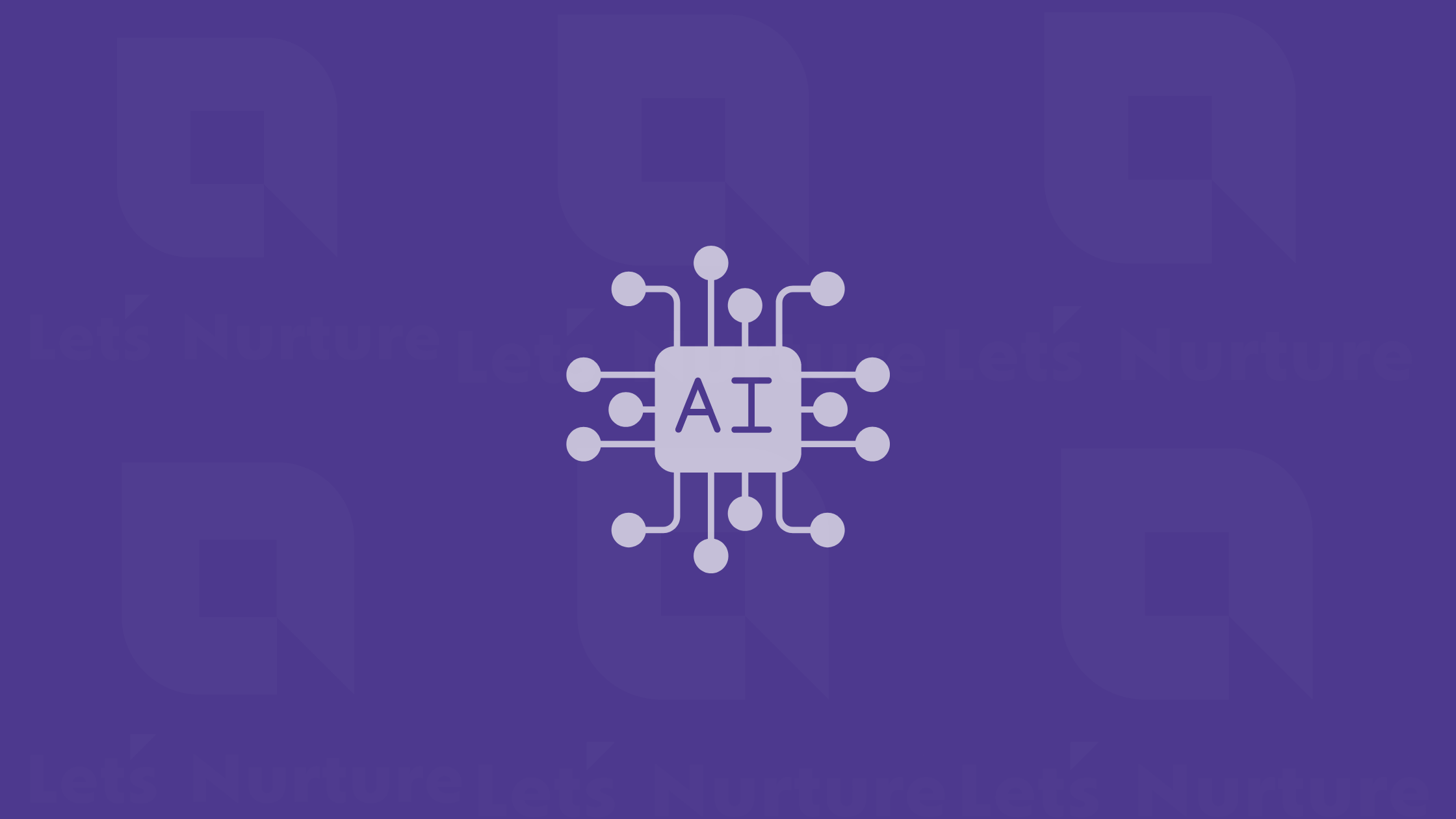- Tech Services

Concept Development
- Industry
- Emerging Tech
- Generative AI Hub
- Blog
- Contact Us

Artificial Intelligence (AI): Importance in Healthcare Industry
In Lets Nurture
16
Feb. 23568
VIEWSThe Role of Artificial Intelligence (AI) in Various Industries
Artificial Intelligence (AI) has been playing a vital role across various industries worldwide for several decades. This revolutionary technology is changing the way we interact, access information, and procure goods and services across industries. Today, AI is taking a leading role in the healthcare sector, where it has the potential to make a significant impact.
The Emergence of AI in Healthcare
According to research and reports, AI is expected to revolutionize healthcare by 2030. By accessing multiple sources of data, AI can identify patterns in disease, treatment options, and care. AI can predict a patient’s risk of certain diseases and provide preventive measures. With AI, the healthcare industry can improve the quality of care, reduce costs, and enhance patient outcomes.
Understanding Artificial Intelligence
Artificial Intelligence was first conceptualized in 1950 with the aim of enabling machines to think and learn like computers. It is the intelligence displayed by machines in perceiving, synthesizing, and inferring information, as opposed to the intelligence exhibited by non-human animals and humans. Examples of AI include computer vision, speech recognition, natural language processing or translations, web search engines, optical character recognition, social intelligence, and general intelligence.
Defining Artificial Intelligence in Simple Terms
In simple terms, Artificial Intelligence refers to the capability of a computer program to perform tasks that are generally associated with human intelligence. AI has transformed the way we interact with machines and has made our lives more comfortable, more efficient, and more productive.
Challenges Faced by the US Healthcare Sector: Post-Pandemic
The US healthcare system has been facing several challenges in recent years, especially
in the post-pandemic era. These challenges include:
- Expensive Healthcare:
1. The US healthcare system is known to be the most expensive compared to any other developed country in the world. This has put a financial strain on both the patients and the government. - Rise of Lifestyle-Related Diseases:
2. There has been a significant increase in lifestyle-related diseases such as obesity, diabetes, and heart diseases. This has resulted in higher healthcare costs and a burden on the healthcare system. - Growing Demand for Efficient Healthcare Systems:
3. As the population grows, so does the demand for efficient healthcare systems that can cater to the needs of patients in a timely and effective manner. - Changing Patient Experience:
4. Patients today have higher expectations from their healthcare providers. The changing patient experience has led to a need for improved healthcare outcomes and better patient satisfaction. - Clinician Burnout:
5. The pandemic has taken a massive toll on the healthcare workforce, resulting in a high level of clinician burnout. This has led to a shortage of healthcare professionals and an increase in the workload of existing staff. - Shift in Lifestyle Choices:
6. The shift in lifestyle choices has led to a need for a more personalized healthcare delivery system. The younger generation prefers healthcare consultations from home, while the older generation prefers primary care providers. - Ageing Population:
7. The world population is exploding, and the ageing population is a matter of concern. By 2050, 1 in 4 people in North America and Europe will be over 65 years of age. This requires a shift from the episodic care-based philosophy to a more proactive and focused long-term care management system to cater to the more complicated needs of the ageing population.
The modern healthcare system is facing several challenges, and overcoming them requires a solid structural transformation in the healthcare system. However, globally, there’s still a projected shortfall of more than 9 million doctors, nurses and midwives. Therefore, the need is not only to train and retain more healthcare professionals but also to ensure that their energy and time are used where it is needed the most, i.e. caring for patients.
The Impact of AI in Healthcare:
AI has the potential to revolutionize healthcare systems and address the challenges mentioned above. It has created intelligent processes and has the power and potential to transform the healthcare delivery system. Systematic workflows are making healthcare within the reach of the maximum population, making healthcare more effective, personalized, and equitable.
Areas of Impact:
The areas of impact of AI in healthcare include chronic care management, self-care/prevention/wellness, care delivery, clinical decision support, triage and diagnostic, diagnostics, medical equipment preparers, medical assistants, occupational health and safety technicians, pharmacy technicians, medical and clinical laboratory technologists, home health aids, and nurse midwives.
Current Usage of AI in Healthcare:
Below are a few examples of where AI is emerging as a game-changer for the
healthcare industry:
Radiology:
AI solutions help to automate image analysis and diagnosis, highlighting the affected area on a single scan to a radiologist, driving efficiency, and reducing human error. It automatically reads and interprets a scan report without human intervention. Today AI-based early-stage MRIs and CT scan for tumour detection can help in the prevention of cancer.
Drug Discovery:
AI solutions are being used to identify new potential therapeutic solutions from a vast database of information on existing medical records.
Patient Risk Identification:
AI technology could help healthcare professionals to detect real-time data for the identification of ‘at-risk patients’.
Primary Care:
Multiple organizations globally are working towards AI-based patient-centric solutions in terms of providing advice via chat-based interactions. This system provides quick, scalable access to basic medical health checkups.
Scaling AI in Healthcare: Three Phases
1. Optimizing Healthcare Operations and Imaging Procedures
The first phase of scaling AI in healthcare involves managing administrative tasks that consume a significant amount of healthcare professionals’ time and energy. AI-based imaging procedures in specialities such as radiology, pathology and ophthalmology also come under this phase.
Phase 2: Shifting from Hospital-Based Care to Home-Based Care
The second phase of scaling AI in healthcare involves shifting towards home based care, with AI-powered virtual assistance, remote monitoring, and altered healthcare systems. This phase has potential for growth in various specialities like Oncology, Neurology, and Cardiology with the help of Natural Language Processing (NLP) solutions in hospitals and home settings.
Phase 3: AI-Centric Clinical Practice Solutions
The third and final phase is expected to see the integration of AI as an integral part of the healthcare value chain, starting from learning to the investigation and delivery of care. This phase is anticipated to witness more AI-centric clinic practice solutions based on clinical trials.
The healthcare industry has yet to fully realize the potential of AI-powered solutions in addressing key health issues. While progress has been made, it is essential that healthcare providers adopt these technologies at a faster rate to mitigate perceived risks and achieve measurable improvements for patients. To do so, emphasis should be placed on app development and cloud solutions, which can enable broader access to AI-powered healthcare services. This will not only increase operational efficiency at scale but also facilitate faster adoption rates and ensure the broad and meaningful impact of AI in the global healthcare industry.




